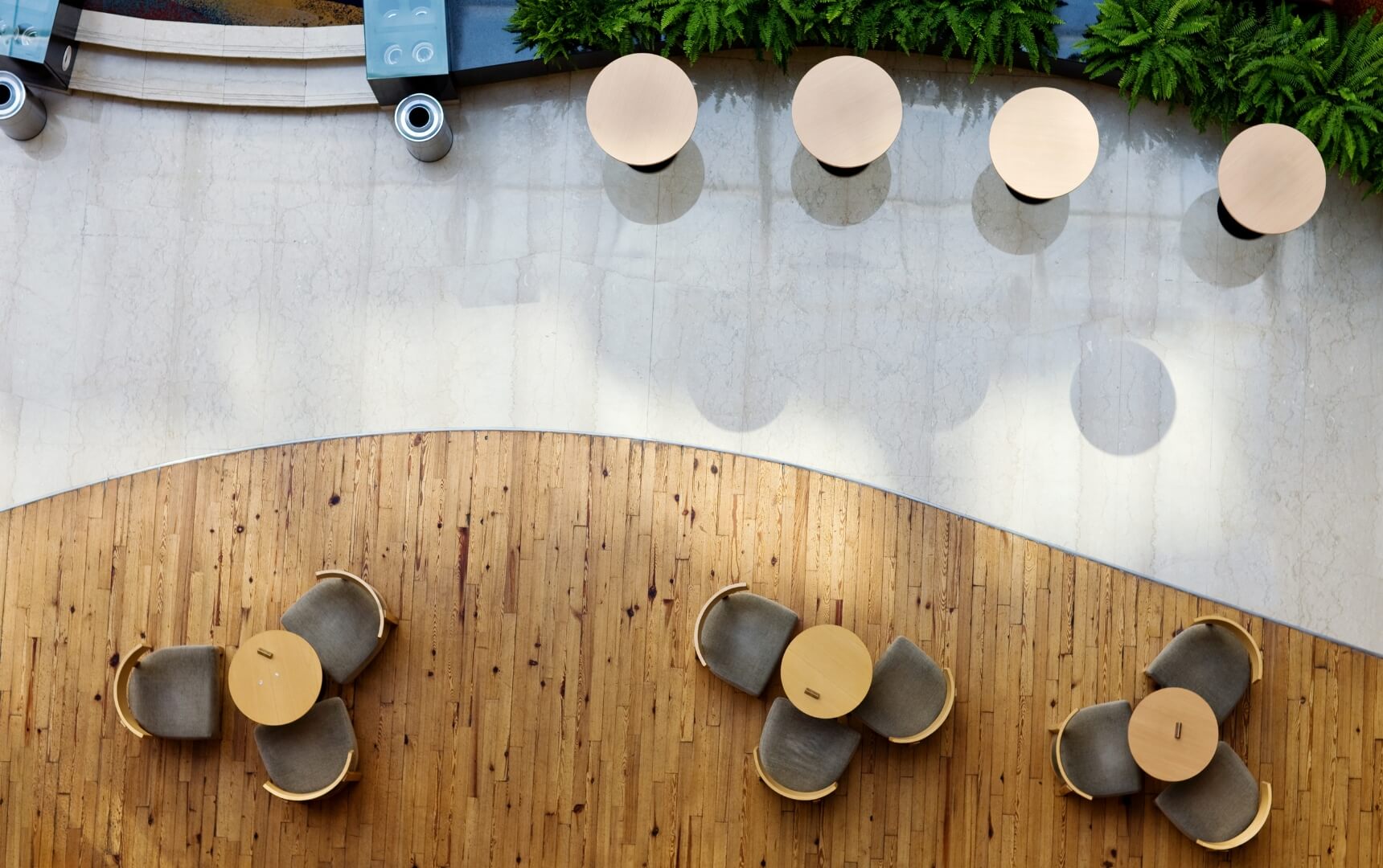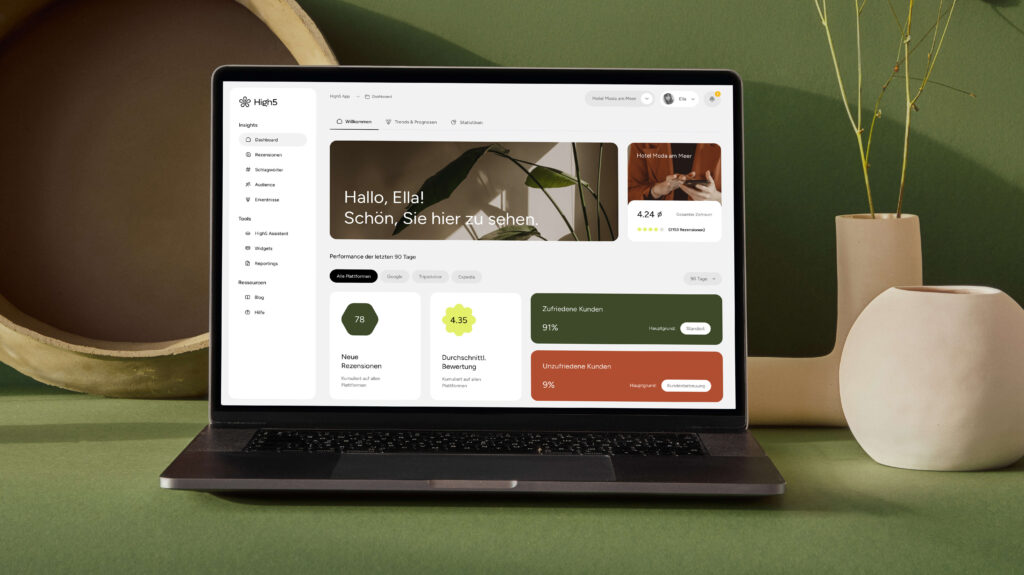What Makes Hotels Sustainable?
Sustainability is no longer just a trend; it has become an essential part of hotel management. While many hotels have already implemented basic measures like energy savings, zero waste, and water management, there are pioneers around the world setting new standards with innovative concepts. These hotels demonstrate how sustainability and luxury can go hand in hand—showing that guests who wish to travel in an eco-friendly way need not compromise on comfort.
QO Hotel, Amsterdam – Circular Economy as the Key
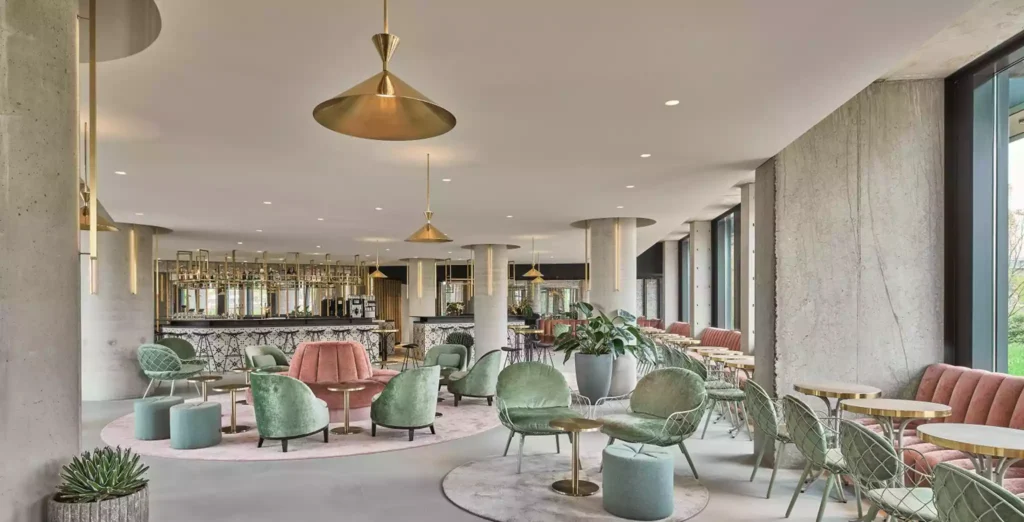
The QO Hotel in Amsterdam is a prime example of circular economy principles in the hospitality industry. Built with sustainable, recyclable materials, the hotel employs innovative technologies to minimize energy consumption. The building’s facade features dynamic aluminum panels that open and close according to weather conditions, helping regulate the interior temperature. Additionally, the hotel operates a hydroponic rooftop garden that supplies the restaurant with fresh vegetables and herbs—an outstanding example of urban sustainability in action.
1 Hotel Brooklyn Bridge, New York – Biophilic Design at Its Finest
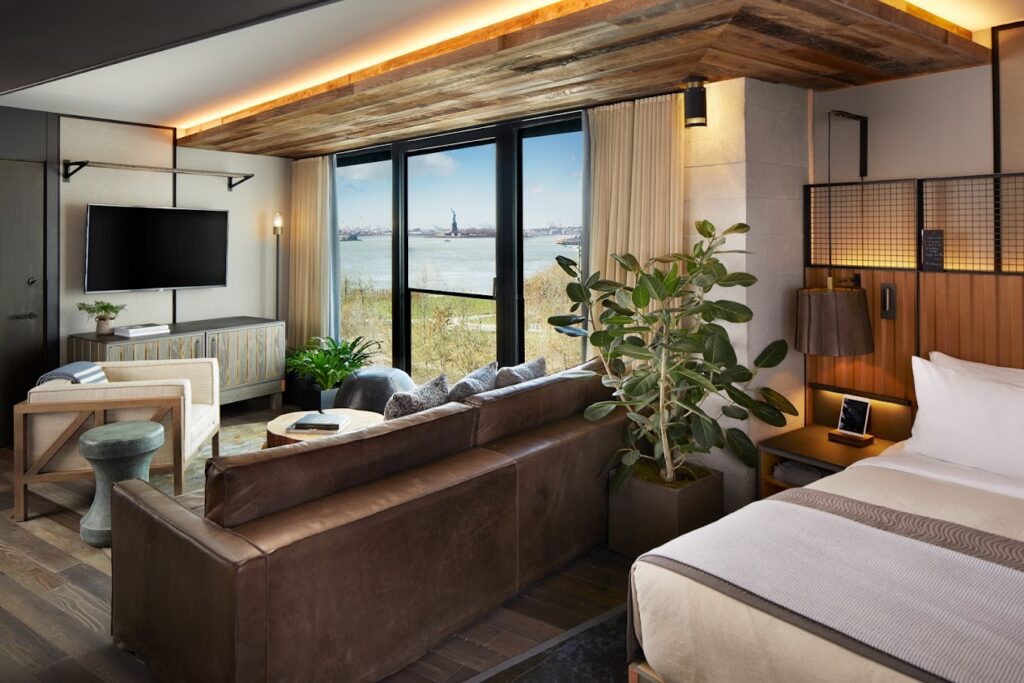
1 Hotel Brooklyn Bridge seamlessly integrates nature into its architecture in a way that is not only aesthetically pleasing but also sustainable. The hotel’s biophilic design features green walls, natural materials, and an extensive rainwater collection system used for plant irrigation. Additionally, the hotel uses reclaimed wood and other sustainable materials. The focus on nature permeates the entire guest experience—from the rooms to the public spaces.
Fairmont Waterfront, Vancouver – Sustainability on the Hotel Rooftop
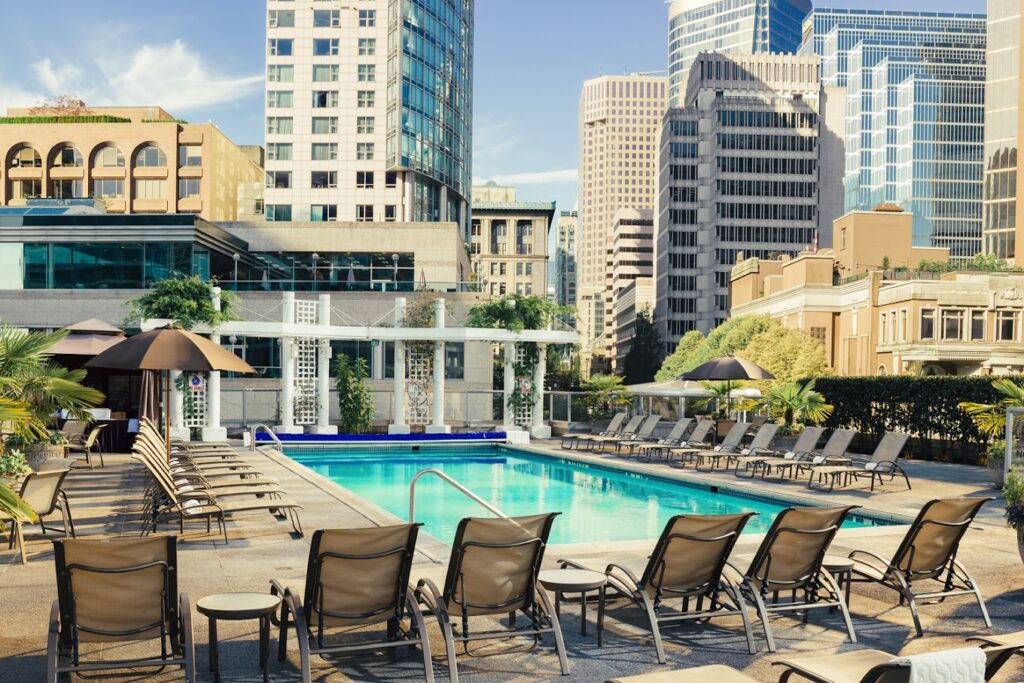
The Fairmont Waterfront in Vancouver combines urban farming with a sustainable restaurant concept. The hotel runs a rooftop bee farm and vegetable garden, supplying many of the ingredients for its restaurant. Additionally, Fairmont relies on renewable energy and water recycling. Guests appreciate not only the eco-friendly approach but also the freshness and locality of the food, grown right on-site.
W Hotel, London – Smart Waste Management with AI
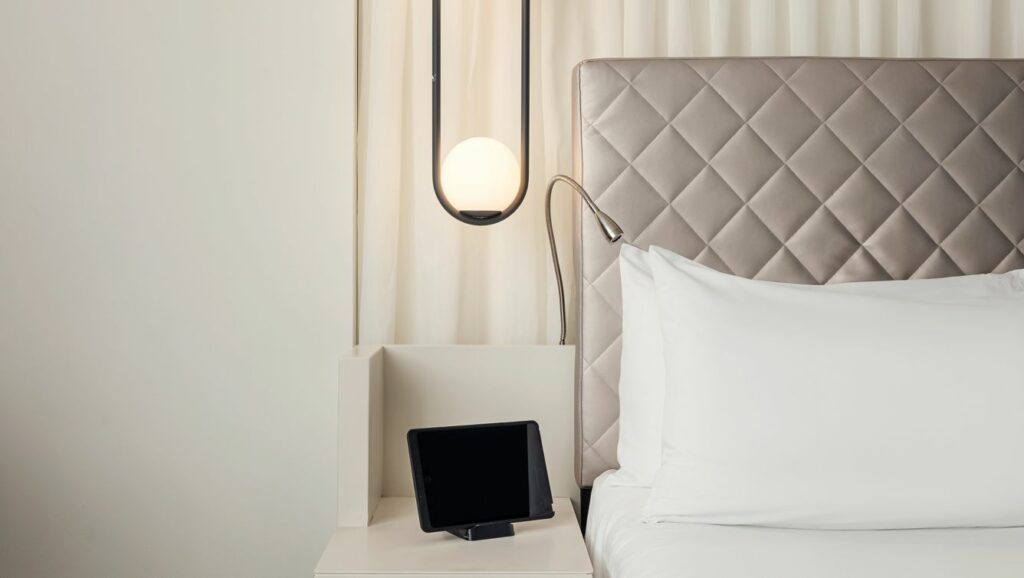
The W Hotel in London uses artificial intelligence to manage waste more efficiently. With the help of sensors and smart bins, the hotel monitors waste in real time and analyzes areas for optimization. This data helps reduce waste and adjust processes to further minimize the environmental footprint. The W Hotel demonstrates how technology and sustainability can seamlessly work together.
Svart Hotel, Norway – The World's First Energy-Positive Hotel
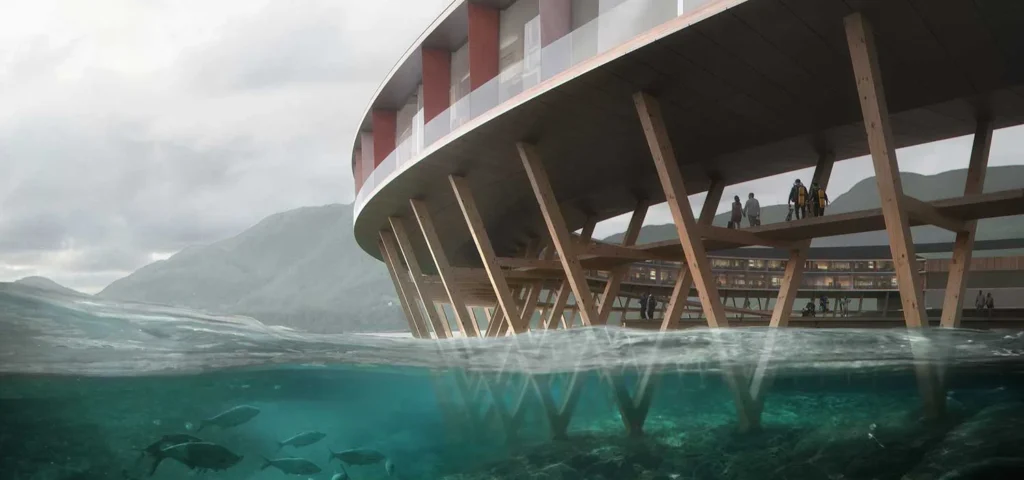
The Svart Hotel in Norway is set to become the world’s first energy-positive hotel, with an expected opening in 2024. Designed to produce more energy than it consumes, the hotel will utilize advanced solar panels and geothermal energy. Its innovative architecture is crafted to maximize solar energy capture while preserving the natural surroundings. Once opened, the Svart Hotel will demonstrate how sustainability and luxury can coexist in untouched nature.
The Brando, French Polynesia – Luxury Meets Environmental Protection
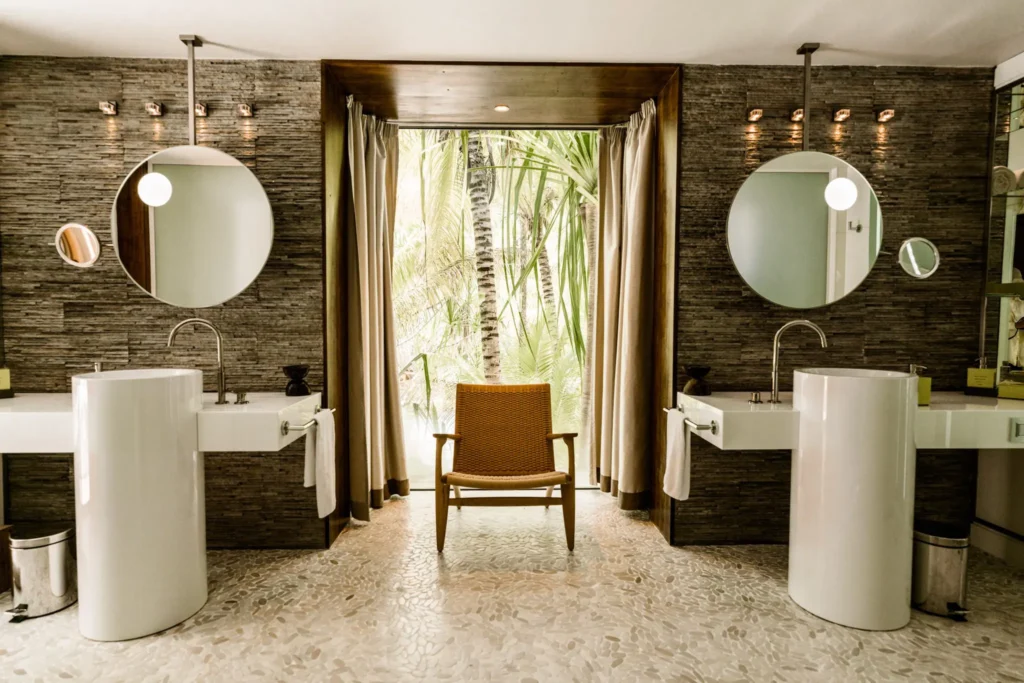
Whitepod Eco-Luxury Resort, Switzerland – Sustainability Meets Futuristic Design
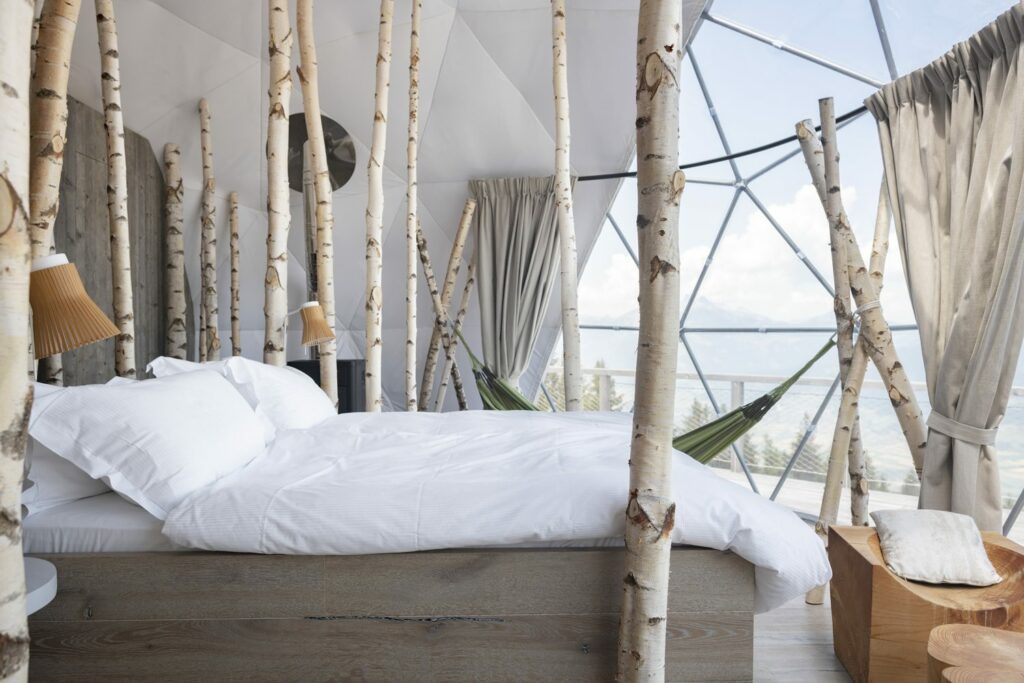
The Whitepod Eco-Luxury Resort in the Swiss Alps stands out with its geodesic domes, which are more energy-efficient than conventional buildings. Guests enjoy the minimalist and nature-inspired design that still offers the highest level of comfort. By using renewable energy and sustainable heating systems, the resort significantly reduces its environmental footprint.
Fogo Island Inn, Canada – Sustainability and Social Responsibility
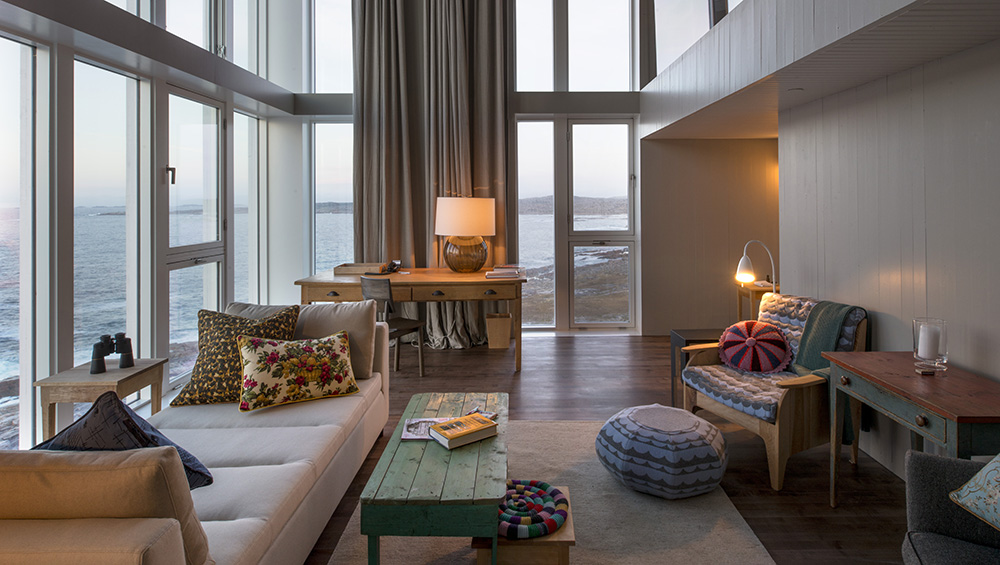
Song Saa Private Island, Cambodia – A Luxurious Retreat with an Environmental Focus
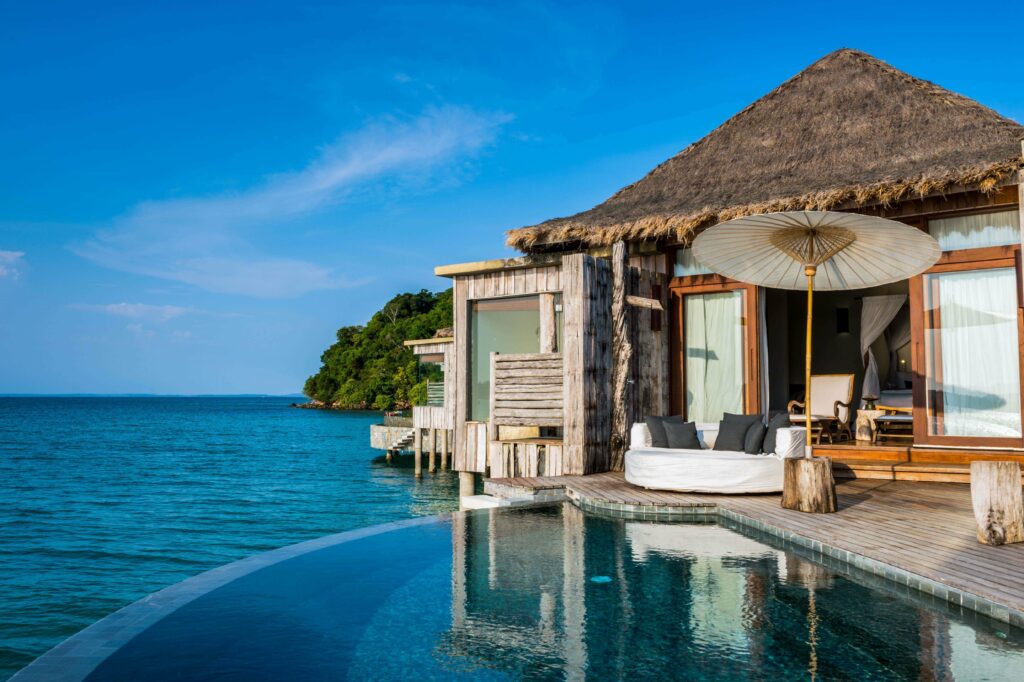
Song Saa Private Island blends luxury with extensive environmental initiatives. Recycled materials, solar power, and water management systems make the resort a model of sustainable tourism. The hotel is also deeply committed to protecting the surrounding coral reefs, demonstrating that luxury travel can coexist harmoniously with nature.
Rethinking Sustainability – Innovation as the Key
The featured hotels go beyond the basics of sustainability, embracing innovative concepts that blend environmental awareness with luxury. They demonstrate that the future of hospitality is shaped by creativity, technology, and a commitment to environmental protection. From circular economy principles and biophilic design to AI-powered waste management, these industry pioneers are setting new standards for sustainable hospitality and inspiring others to make travel more eco-friendly.
But sustainability is just the beginning. The future of hospitality combines environmental stewardship with cutting-edge technology to offer guests a personalized experience. Learn more about how data-driven guest services are driving this transformation in our article: Digitalization for Hotels: How Modern Technology is Revolutionizing Guest Services
What Makes Your Hotel More Sustainable? How to Turn Measures into Reality
How can such measures be effectively implemented in your hotel? How can you successfully integrate sustainable concepts with a set budget? It is crucial to understand what makes hotels sustainable for your guests and identify areas that still have room for improvement.
Guest reviews are a valuable resource. Not only do they help convince new customers, but they also reveal what resonates well and highlight areas for improvement.
This is where High5 comes in. This AI-powered software goes a step further: it not only analyzes reviews but also provides concrete recommendations based on these insights. With in-depth knowledge of your business and your guests’ needs, High5 delivers precise recommendations tailored to your budget and capabilities. This ensures that the suggested concepts are not just good ideas, but truly actionable measures designed specifically for you.

